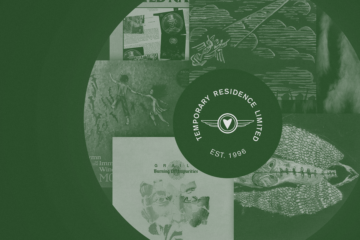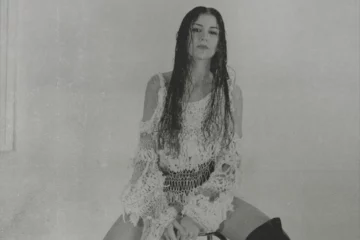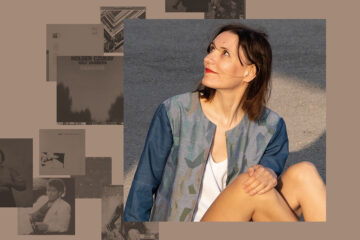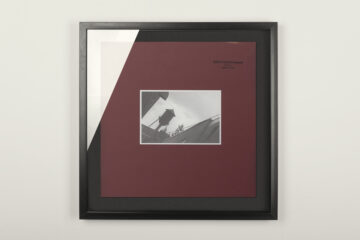Rachel, in general you seem to have a very conceptual approach to music. But last year you released a digital track called »Loretto« which is an improvisation, almost a meditation. What’s the story behind this track?
Rachel Grimes: It took me a while to decide whether to release it or not, but it was sort of a favourite improvisation from a series of days that i had spent trying to develope some new music. I do spend a lot of time structuring the ideas that I begin with and scultpting them and so yes, I am pretty conceptual especially when it comes to a release. I usually definitely spend as much time as it takes which is often a few years to just make sure that all the music makes sense together as an album. But I had been working on a few ideas and I took those ideas to a retreat to a women’s monastery here in Kentucky. Part of their mission is to welcome artists and people to come and have some free space and time in the country to create work and they actually have an amazingly beautiful place. It’s a very tall brick room with a wooden ceiling and there is a Steinway piano, so it’s pretty ideal for pianist retreat.
The musical idea in that improviastion »Loretto« was simply if I have an Ostinato in the left hand that is a steady and consistent framework around which to let the right hand go completely free. So, i worked on that idea a lot and I made many little scratch demo recordings. And that one turned out to be the best. It was just a good morning for me, I was clear thinking.
It almost sounds like a sampled loop on which you build up the improvisation. Would you see that as an electronic aspect in your music? Are there inspirations coming from that side of music?
Rachel Grimes: Oh yes, I listened to a lot of ambient music. I wouldn’t say that i’m an expert on the electronic scene. For years I was really into Fourtet and Aphex Twin. I don’t listen to them so much anymore but I have found what interest me more now is the idea of applying a lot of those techniques to live playing – as a form of discipline I guess. Is there a way to utilize the concepts that are often used in eletronic music or live looping and just force yourself to do it. It’s hard for me because i have a tendency to waver in the tempos. It’s kind of a good thing for me to try to have something like an ositinato or somehting like a steady rhythm, it’s a little bit like a reassuring anchor.
That is the interesting thing about the Loretto piece. It is very steady, has a clear framework, is very conceptual. At the same time it is an improvisation. It’s looking for something. It’s like we can listen to you looking for something. That’s what makes it interesting.»I’ve played other instruments, but i just can’t ever get away from the keyboard. I feel like there are just endless options at the piano. I don’t ever feel bored by the instrument.«
Rachel Grimes
Rachel Grimes: That piece eventually became, well i segmented some ideas from it and that piece is most clearly obvious in the Book of Leaves as »Every Morning« and »Every Morning Birds«. I took the same idea and made it more of a final scored piece on Book of Leaves. That’s where those pieces derived from and i’m always dealing this issue of strict-on-paper or improvisatory moment and it seems to be part of my make-up.
Why do you play the piano? Is there something you can articulate that you maybe couldn’t on another instrument?
Rachel Grimes: At this point of my life it’s not a conscious choice. My grandmother, my great grand mother, my father – they were all pianist. So it seems that there is just something innately in my genetics about the keyboard and I played from such a young age, It’s just part of my fabric. I’ve played other instruments, but i just can’t ever get away from the keyboard. I feel like there are just endless options at the piano. I don’t ever feel bored by the instrument.
In time’s of mp3 files and their compression, there seems to be less silence in music, less dynamics, less lower volumes. A lot of your music makes it necessary to really sit down and listen to it, to stay calm. Would you like your music to create this silence or would you be okay if it’s used like furnishing music?
Rachel Grimes: I think you’re right on. It’s the entire reason why I spend so much time sculpting the music. Why I take great pains to make sure it’s recorded in the right place with the right engineer and mastered with the right people, so that there is the most natural and deep representation of the dynamic expression that is essential to me. All that said, I have no intention for how anyone would listen to my music. Once i put it out in the world, people can do with it what they want as a listener.
The incredible irony of the modern age of music listening is that we have before us all the tools and microphones and processing and mastering and capability imaginable – it’s never been as good as it is to make the best sounding music. And yet so many people listen to music in the absolutely worst sounding way which is these compressed or really digitalized files or they’re just terrible headphones or whatever. They are not listening to albums, they are listening to sections or pieces or songs that were taken out of context. But there is nothing we can do about that as musicians. We can just try to entice people to give it a little bit more attention.
__Further talks in this series: [link ruby_id=’157′] und [link ruby_id=’164′] and [link ruby_id=’177′].__









